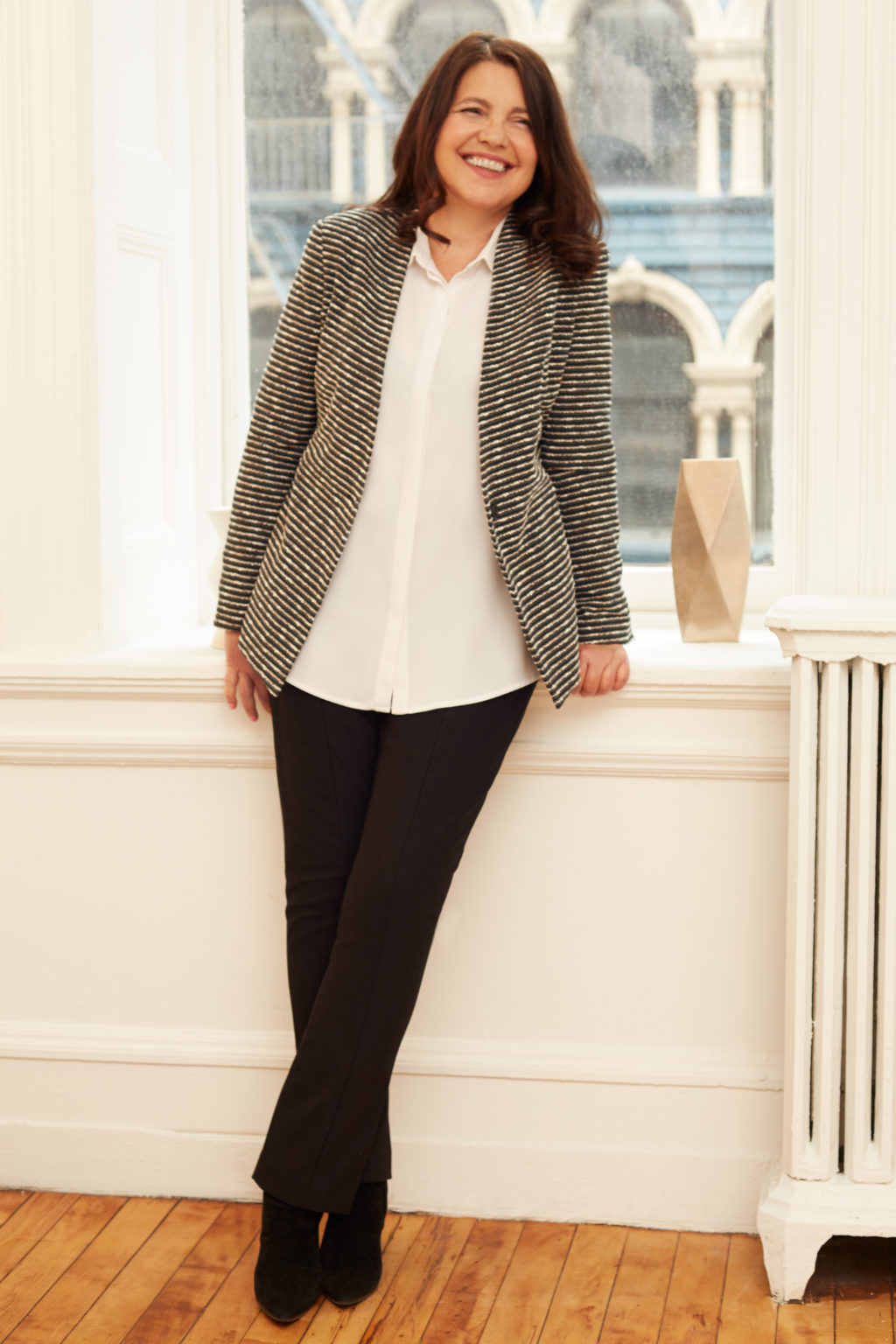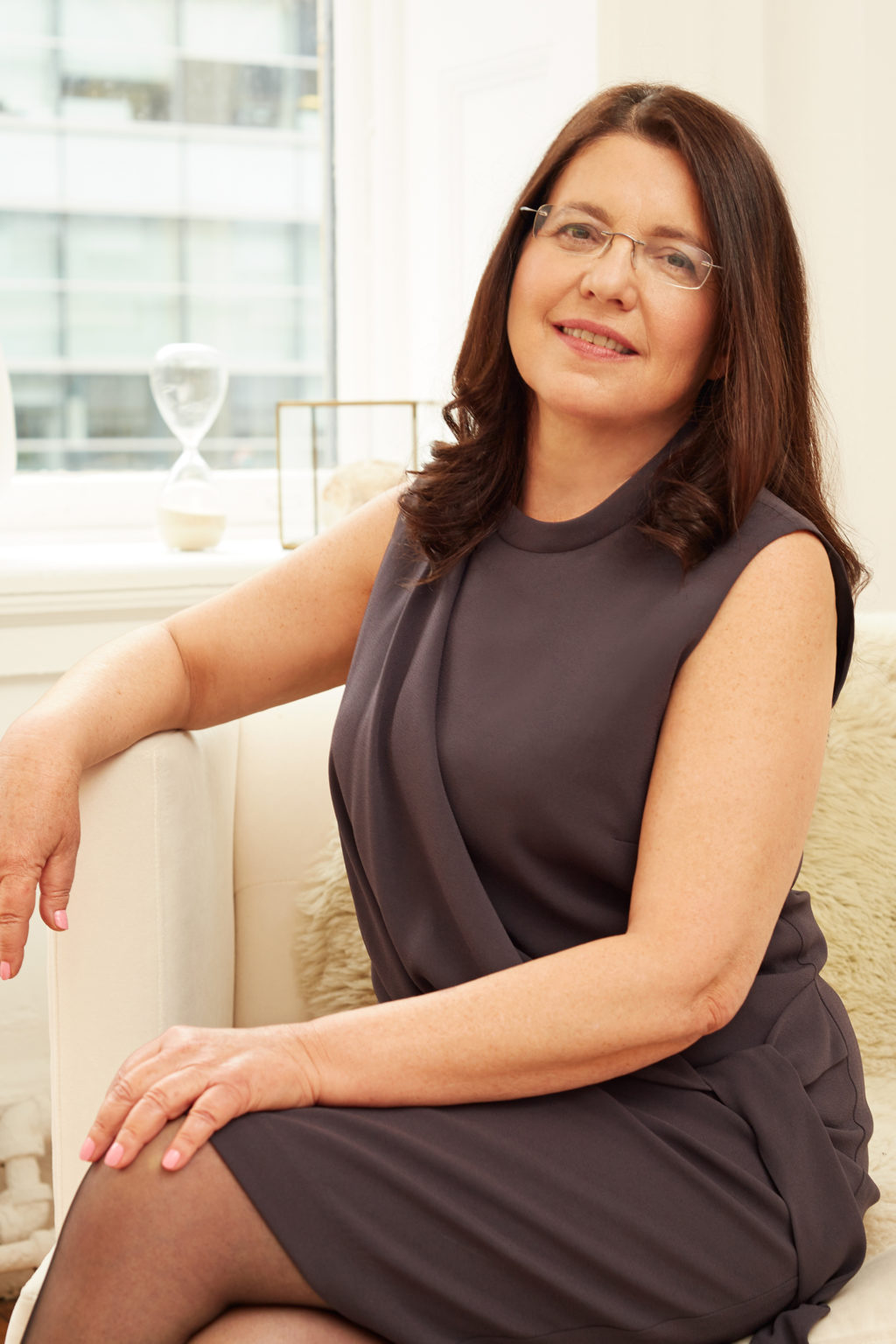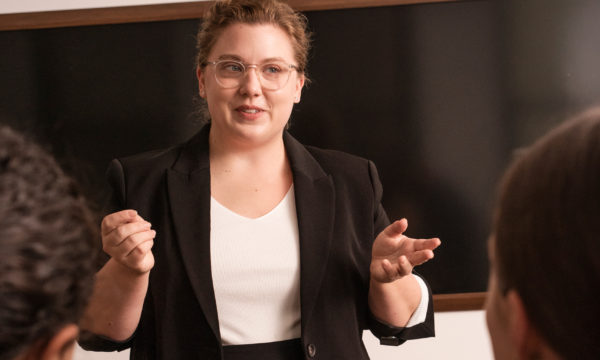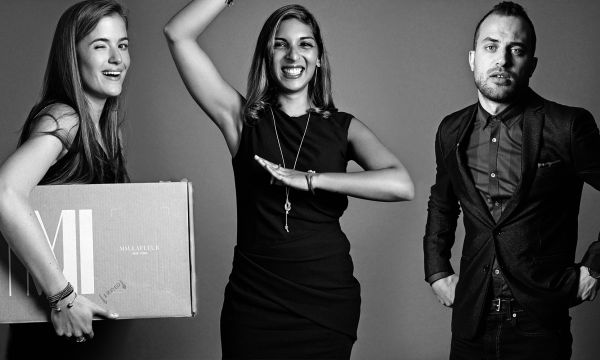Sabra’s CEO: Why Taking a Year Off Work Was Great for Her Career
July 28, 2017 | Filed in: Woman of the Week
You may not recognize Shali Shalit Shoval, but you’re definitely familiar with her work: She’s the CEO of Sabra, the country’s best-selling hummus company. She recently stopped by MM’s offices to discuss the culture of food, the confusing quality of American politeness, and why taking a year off at age 49 was great for her career.
MY FIRST JOB WAS in the chocolate business—my childhood dream! I went on to work at Frito-Lay, which had a branch in Israel. I love this industry because food is for everyone, and it always involves stories. Whenever I talk about food, I can learn something interesting about anybody. In my culture in Israel, and all over the Mediterranean, food is something that brings people together. When you sit together and eat together, especially something that is tasty and good for you, it’s a special experience.
I WAS BORN IN A VERY SMALL TOWN in Israel, and I wanted to be in the cinema. I still love movies. I ultimately decided to go in a direction in which I could better excel, but I married a film producer! There is no film I have not seen.

Shali wears the Lagarde 2.0 shirt in cream, the Foster pant in black, and the Wharton jacket in yarn stripe.
IN UNIVERSITY, I studied industrial engineering. Then, two decades later, I got a second degree in philosophy. I had been working for 20 years, and I decided to take a year off to be with my two sons before the oldest one finished school and went into the army. I thought, “I’ve worked so hard for so long, I’ll take one year where I can enjoy my children and they can enjoy me.” They were 15 and 18, and I was 49, so it was my birthday party before 50. It was so fun. I was also lucky because I was able to take that time and then go back to the same company, for another job. It was very good for me, and my family, and it also gave me some perspective. I came back fresh and with a lot of excitement, and I also decided to go back to school. When I returned to Frito-Lay, I had just started my studies, and for the next two years I was working during the week and studying on the weekends.
MY SECOND DEGREE IS IN PHILOSOPHY, and I focused on the digital world. Philosophy is always about how you relate to “the other,” but in the digital world, everything is changing, and the spectacle of “the other” is changing. There are many perspectives. It took me a couple of months to learn the language of philosophy, because when you come from the business world, everything has to be very clear-cut. In philosophy, everybody is interested in different points, and you need to adapt. It’s a very good exercise, and it stretched my mind.
I MOVED TO THE U.S. from Tel Aviv in 2013. It wasn’t my first time working internationally; I had also been relocated to France for three years, between 1997 and 2000, to manage a chocolate factory when my kids were very young, and it was exciting. My family was very supportive of our move to New York, and my husband was very flexible, so I had luck. I’m in love with this country. There is so much to see—it’s just so big, and I can use the weekends to do so many things. Also, our company here is so diverse. The CMO is from Sardinia and the CTO is from Turkey, and we have Canadians and Indians and Americans and Israelis and Egyptians and Mexicans, and it’s so interesting. Food is very relevant, because it’s something we can all talk about. Building this company ten years ago, the idea was, “Share the world.” I think there is a need for connection, and there is a need to eat something that is tasty and healthy, and we encourage that sharing within our company. We have a communal vegetable garden, and everyone uses it—people of all levels, from all departments. It is a great place to talk to people and see what’s going on.

Shali wears the Marian dress in obsidian.
AT SABRA, OUR LEADERSHIP is fifty-fifty in terms of gender. We didn’t do this on purpose—we just took the best people we could, and I am very proud of the result. The CFO is a lady, the head of HR is a lady, and the CTO is a lady. The heads of marketing, operations, and international business are men. We work well together, and I do believe that the balance contributes to the success of the team. But it’s not easy to be a woman CEO, and it takes time for a company to appreciate a different leadership style than they are used to seeing, and to understand that women have different leadership styles, and that they shouldn’t just imitate men. We need to talk about it. The leadership style of women is just as good, especially if you integrate it in a diverse company, and it’s becoming more and more common. I can tell you that 30 years ago it was less easy.
I WANT TO WRITE A BOOK about some of the funny ways I had to adjust when I came to the U.S. I used some consultants when I started, to be agile. To understand other cultures is very interesting but it can be hard. There are surprises—some of them are very funny. For example, at the beginning, everyone was always telling me that everything I said was a “great idea.” Even when I knew it wasn’t! I thought, “Do they really think all my ideas are so good?” People are so nice to you here—the politeness is amazing, but sometimes it’s confusing, because it hides what people really think. You need to learn to translate from other indications. We are very direct in Israel. Now I know how to read faces better.
I HAVE A UNIFORM for work: long shirts, trousers, and jackets. I like a little bit of a heel, but not too much. It’s very modular, very convenient, and not too much hassle. I’m not fond of shopping at all. I will spend money on shoes and glasses, but that’s it.
TO FIND MY BALANCE, I’ve been doing yoga for many, many years, at least twice a week. I walk in Central Park for one hour every other day, three to four times a week. I like to be outdoors to clear my head.
Photos by Maria Karas.








